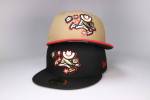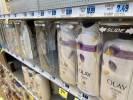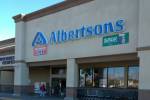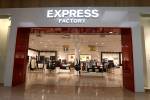Retailers Weigh In on Coupon Etiquette
Last week, I shared feedback from readers who had strong opinions on shoppers who buy in bulk. "Shelf-sweepers" came in for a lot of criticism from fellow shoppers who feel that it's only fair to leave product on the shelf so other bargain hunters have a chance to save. But what do stores think of these high-volume customers? Here's an email from a retailer who offers some great insights:
Question:
"Thank you so much for your article about coupon etiquette. I am a customer-service manager at a local grocery store and I agree with your advice to buy as much of a sale item as you feel you will use. If items are on clearance, by all means, buy us out!
"The tricky part is when stores put limits on purchases of sale items. Let's say we have a limit on two cases of canned vegetables and a customer comes to the register with four. If I enforce our limit, the two extra cases go back onto the shelf, and I'm left hoping that somebody else will come along and purchase them. There's no guarantee they will sell. However, if I don't enforce the limit, I sell those two cases.
"Let's not kid ourselves. In the grocery business, as in all businesses, the bottom line is the bottom line. In terms of coupons, it's important to remember that every
customer has the right to purchase as many items as his or her budget will allow. Other shoppers may consider it rude when a couponer clears a shelf in order to stock up on an item, but at the end of the day, buying in large quantities will never bother store management. Thank you again for your article. It was very thought-provoking."
Answer:
I received several other emails from stores echoing this sentiment. Shoppers who buy more are keeping their stores in business. They're choosing to spend their dollars at one store over another. In areas where several supermarkets compete, every sale counts. Supermarkets operate on a very thin profit margin, so it's understandable that a store wouldn't want to lose a guaranteed sale from a shopper purchasing large quantities of an item.
Another common theme in emails from retailers is their willingness to special-order items in the quantities a shopper needs.
Question:
"If you know you want to buy 20, 30 or 100 bottles of salad dressing, I'm more than happy to sell them to you, but I encourage shoppers to come to the service counter and place an order for them if they want that many at once. When your order comes in, you can get exactly what you want, and then the shelf isn't completely wiped out if it's a popular sale item."
Of course, it's never possible to discuss a semi-controversial topic without hearing some unusual stories, too. Here's an email from a store that favors full shelves over sold-out products.
Question:
"I work at a supermarket and part of my job is to keep the shelves 'faced.' This is when we line products along the front side of the shelf so they are even and look good. But when the extreme couponers come and purchase a lot of these items, there can be a hole in the shelf that doesn't look nice. My manager got in trouble when corporate visited and we had some empty spaces because we were sold out of things. He told us that we can't let these couponers buy too many products at once anymore because empty shelves equal demerit points for the appearance of our store."
Answer:
I have to wonder what this store values more: picture-perfect aisles or profit?
Next week, I'll delve back into the topic of coupons found in-store. Is taking six or 10 of the same coupon from an in-store display really too much? The answer may surprise you.























